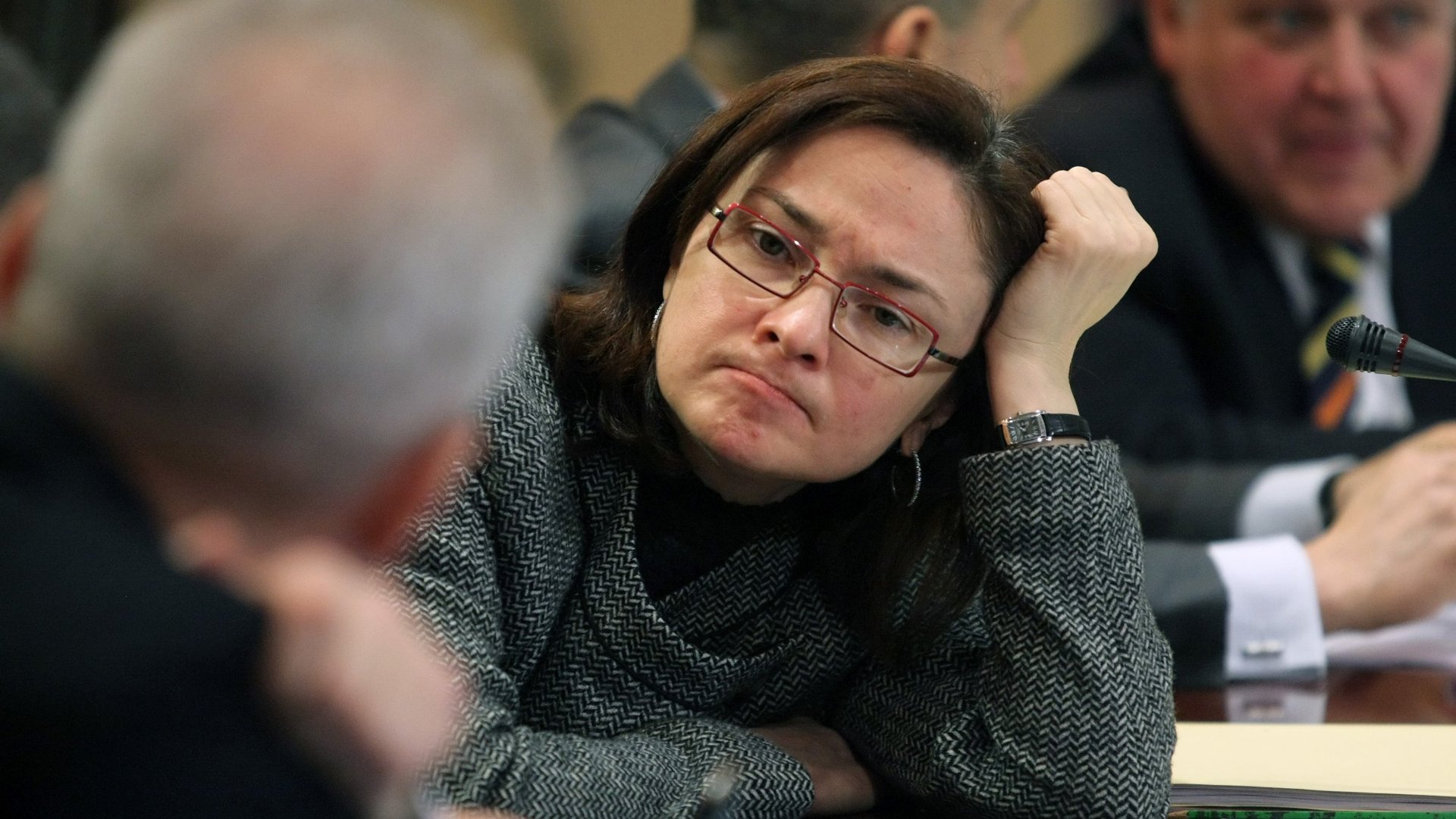Why emerging markets are more likely to choose female central bankers
“Central bank president” is one of the many top jobs dominated by men. So it’s worth noting Russian president Vladimir Putin’s decision today to name Elvira Nabiullina to head the Central Bank of Russia. Nabiullina, who previously served as economy minister, will all but assuredly become the first female central banker in Russia’s history, the first in the G8, and one of only 13 other female central bankers around the world (as of late last year).


“Central bank president” is one of the many top jobs dominated by men. So it’s worth noting Russian president Vladimir Putin’s decision today to name Elvira Nabiullina to head the Central Bank of Russia. Nabiullina, who previously served as economy minister, will all but assuredly become the first female central banker in Russia’s history, the first in the G8, and one of only 13 other female central bankers around the world (as of late last year).
But what’s most interesting is that female economists seem to rise through the ranks more often in emerging markets than advanced ones.
In the US, although many women have become Federal Reserve regional presidents and board governors, no woman has ever chaired the Fed. The European Central Bank (ECB) tried in vain to find a woman to fill a spot on its Governing Council last fall, but ended up keeping its all-male ranks. The FT’s Michael Steen explained in September that the ECB just couldn’t find any women (paywall):
As this list of managers shows, just two of the 21 ECB directorates are headed by women. Further down the ranks, men continue to outnumber women by some distance. Taking into account the fact that senior women are disproportionately represented in communications, a picture emerges of the core functions of the bank being dominated by men… [O]f all 27 EU member states, exactly zero have a woman in charge [of the central bank].
Perhaps even more troubling, the ECB didn’t even vet any women for the post up until the last minute. Perhaps it should have compiled binders full of women to consider.
Some researchers have suggested that fewer women succeed in economics because the profession isn’t suited to them. In a 2009 paper (pdf), economists Christina Jonung and Ann-Charlotte Ståhlberg summarize and then criticize this thinking:
The commentators suggest that economics does have a gender. It is a male subject, developed by men and controlled by men, with characteristics adjusted to the male brain and men’s preferences, rewarding the type of research that men like to do, with careers organized in a way to suit the life of men. In order to keep up the power, pay, prestige, and political influence of the subject, men tend to keep women out.
[…] We are not convinced. Economics may have a social gender, but gender roles change over time. New roles for women in the economy have made an increasing number of women discover the usefulness, strength, and charm of economics.
Gill Marcus, the President of South Africa’s central bank, echoed those feelings, telling Bloomberg Businessweek in 2011 that the paucity of women in the dismal science (specifically in top posts) is the result of ingrained beliefs rather than aptitude or desire for the job, and that in countries with younger institutions, these beliefs have less weight:
Emerging markets are “much more concerned about growing our societies,” said Marcus, who remembers turning up for meetings of international counterparts to find she’d been placed on the list of officials’ spouses. “Advanced economies are much more established in their ways of doing things.”
With an economy largely based on oil and natural resources, Russia is desperate for demand-driven growth and innovation. Although the country has opposed UN resolutions that advocate harsher penalties for violence against women, Putin’s choice of Nabiullina should make recessionary Europe and even the slow-growing US reexamine their own gender-skew.